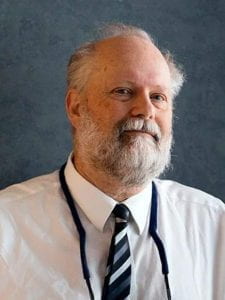
Christopher Stubbs joined Harvard in 2003 as a Professor of Physics and of Astronomy. His research interests lie at the intersection of cosmology, particle physics, and gravitation. Stubbs received an International Baccalaureate diploma from the Tehran International School in 1975, a BSc in physics from the University of Virginia in 1981, and a PhD in physics from the University of Washington in 1988.
His research career started with experimental tests of gravitation, performing precision measurements to explore possible modifications to gravity. He was on the faculty at UCSB, and was then member of the University of Washington faculty for a decade before moving to Harvard in 2003. He served as chair of Harvard’s Physics Department from 2007 to 2010. He is a Fellow of the American Physical Society, a recipient of the National Academy of Sciences Award for Initiative in Research, the NASA Achievement Medal, and is a co-recipient (with other members of the High-z Supernova Team who discovered the accelerating expansion of the Universe) of the Gruber Foundation Cosmology Prize and the Breakthrough Prize in Fundamental Physics. Stubbs was awarded a McDonnell Centennial Fellowship, and a Packard Fellowship, and currently serves on the advisory panel for the Packard Foundation. He is an Annenberg Distinguished Visiting Fellow at the Hoover Institution, in connection with his interest in arms control and technical aspects of international security issues.
Christopher Stubbs was the Director of the Rowland Institute at Harvard from July 2019 to December 2019.